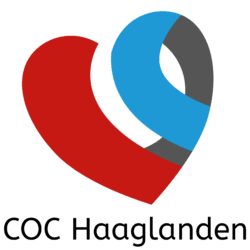Municipal councilors in Zoetermeer want to continue the current policy, focus on more cooperation with COC Haaglanden and support initiatives from the 'pink' community in Zoetermeer. These are the main results of the Pink Council debate on Tuesday 13 March in Zoetermeer.
Zoetermeer is a rainbow city and it shows. Many things are well organized. In the Pink Council Debate, which COC Haaglanden and DWH are organizing on March 13 in Zoetermeer to exchange ideas about themes for gay men and lesbian women. bisexuals, transgenders and people with an intersex condition (LGBTIs) are important, the parties agree on a lot. For example, there must of course be gender-neutral toilets if people want that. 'In addition to a men's and a ladies' toilet, you can also install a gender-neutral toilet,' says Vivianne van Yperen (VVD). 'It is a pity that the town hall has just been renovated and that there is no gender-neutral toilet in it.' It is also fine that the municipality uses 'dear resident' as the salutation of letters. 'We also do this in letters to our members,' says Dennis Geurten (Direct Democracy Netherlands). Facilitating meeting opportunities for LGBTI people with a multicultural background is also a task for the municipality. That group must, however, stand up for itself, says Hilbrand Nawijn (LHN). 'The government supports minorities. But they have to show that they are there.' Claire Hostmann (GroenLinks) continues: 'As a municipality you can lower the threshold with specific facilities. Loneliness kills. It is also important to work on social acceptance in this group.'
transgender friendly
Research shows that transgender people are more often unemployed than others, partly as a result of prejudices among colleagues and employers. Does the municipality of Zoetermeer want to set an example in this as an employer? The municipality wants that. Esmee van Oudheusden (CDA): 'You can think of the commitment of a coach who can respond well to this.' And introduce transitional leave? 'A good idea', says Tarik Salarbux (Party for Zoetermeer). The audience noted that the target group policy should be reintroduced. Customization is needed. Jamila Bakkers (D66) hesitates: 'The target group policy has the disadvantage that you put people in boxes. On the other hand, full inclusiveness doesn't work either. I'm looking for something in between.' René Haak (Party Democracy for Zoetermeer) notes that realizing an LGBTI-friendly working climate is only feasible for municipalities. 'For an entrepreneur, it's about how someone is at work.' Hostmann (GroenLinks) sees possibilities: 'We can provide information, appoint a confidential adviser, and present an Award to pink-friendly companies.'
Sport
The candidates also quickly agree on whether the municipality should ensure that sports associations become more attractive to LGBTI people, for example by partnering with the John Blankenstein Foundation. 'Yes', says Jeremy Mooiman (PVV). 'The role of the municipality is to enter into discussions with sports associations about how we can achieve this.' Hostmann (GroenLinks): 'We are happy to take the lead in this. We want an agreement with organizations to make sport safer for LGBTI people.'
Bully moves
An interesting question is whether in the event of bullying in the residential environment, the bully should move. Jan Velner (SP) is in favor. 'If the bullied has to move, he or she has to build a whole new life in a different place of residence.' Marijke van der Meer (Zo Zoetermeer!) agrees with this, but considers the obligation to move house an extreme measure for the bully. 'Then you must first have had conversations with the bully and the bullied. That is a task for the district director. It seems difficult to prove to me.' And do you solve the problem if the bully moves? 'It just starts again somewhere else,' says Geurten (Direct Democracy Netherlands). Marissa van der Tol (PvdA): 'We don't have a good solution. The bullied is not really helped and you have to be careful not to falsely accuse someone. That happened to me once, and it's terrible.'
Street Harassment
In fact, it is about social acceptance and therefore about behavioral change, someone in the audience notes. What can the municipality do about it? 'I advocate making street intimidation a criminal offence', says Haak (Party Democracy for Zoetermeer). "But when is something street harassment?" Mooiman (PVV) doubts. 'If I feel intimidated, then I don't feel safe', is the answer from the audience. 'Report it', says Van Yperen (VVD). 'The police can register when LGBTI intimidation takes place. Then you can tackle it in a targeted manner.' Van Oudheusden (CDA): 'I am more for discussions and information. But if that doesn't help, you should still criminalize it.'
In four years
What are the politicians accountable for? Zó Zoetermeer!, D66 and the PvdA want to continue the current policy and, if necessary, send sports associations on courses. More cooperation with COC Haaglanden is needed, so that the wishes and needs are better known, say GroenLinks, SP and Party Democracy for Zoetermeer. GroenLinks and the VVD also look forward to initiatives from the 'pink community' with interest.


You cannot reply to this post